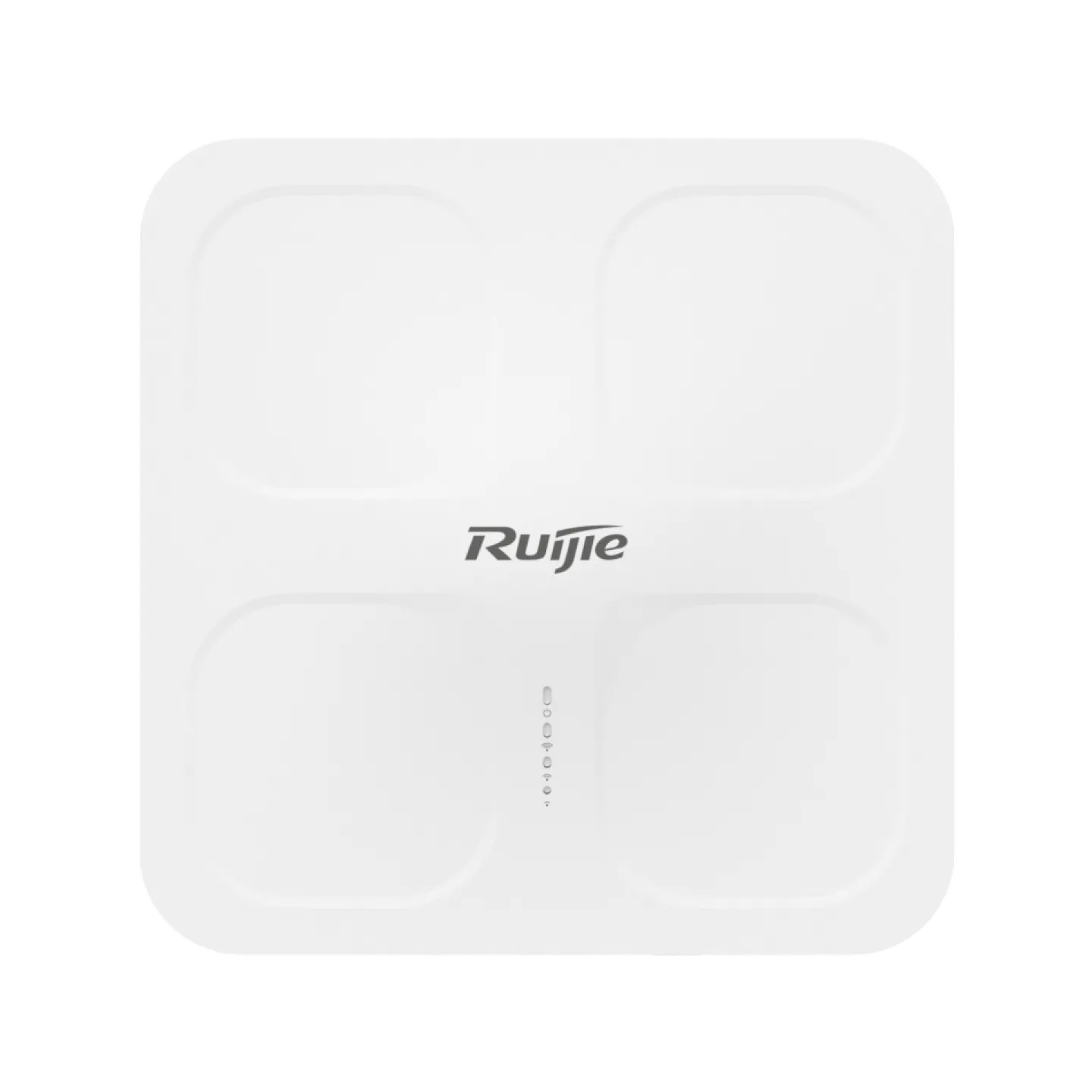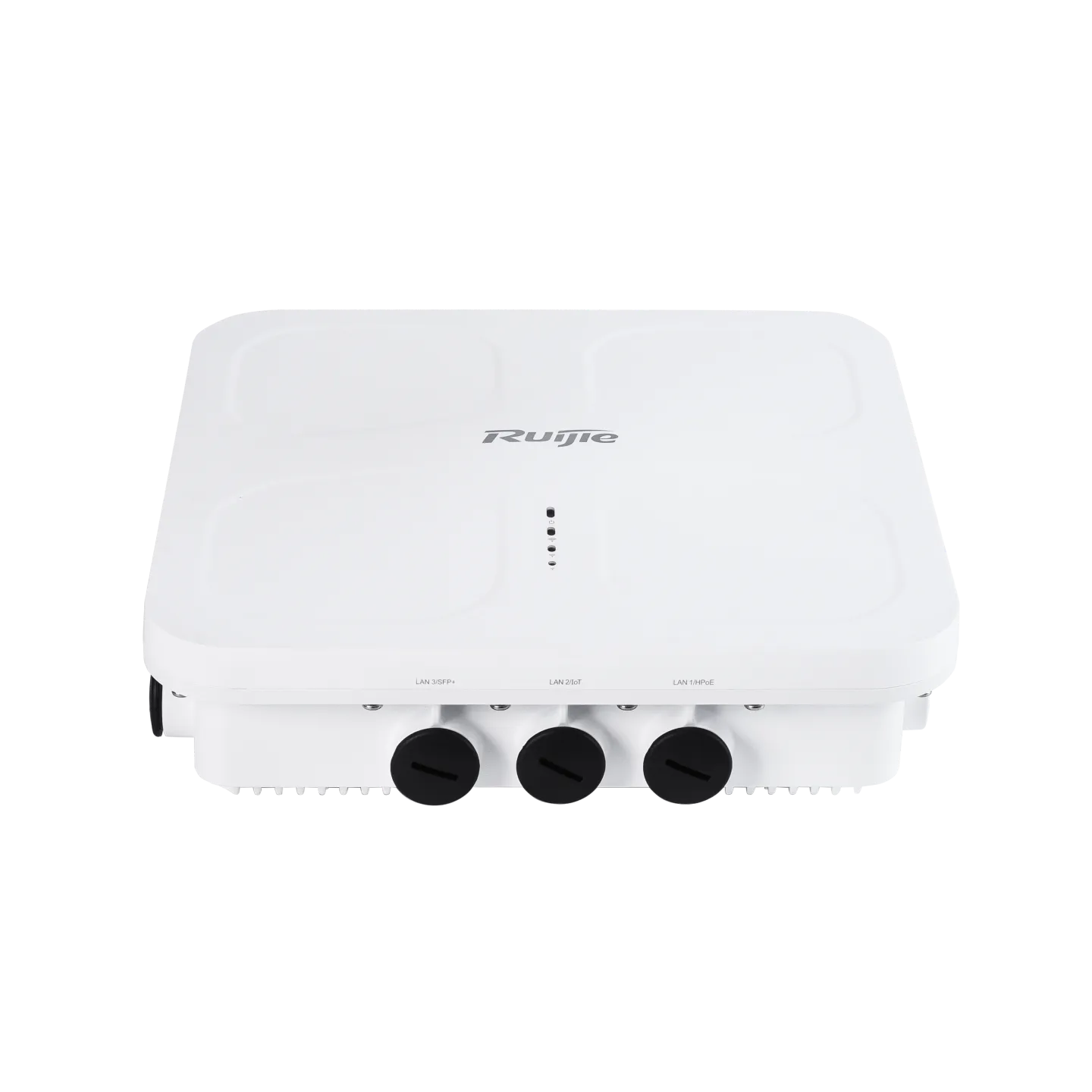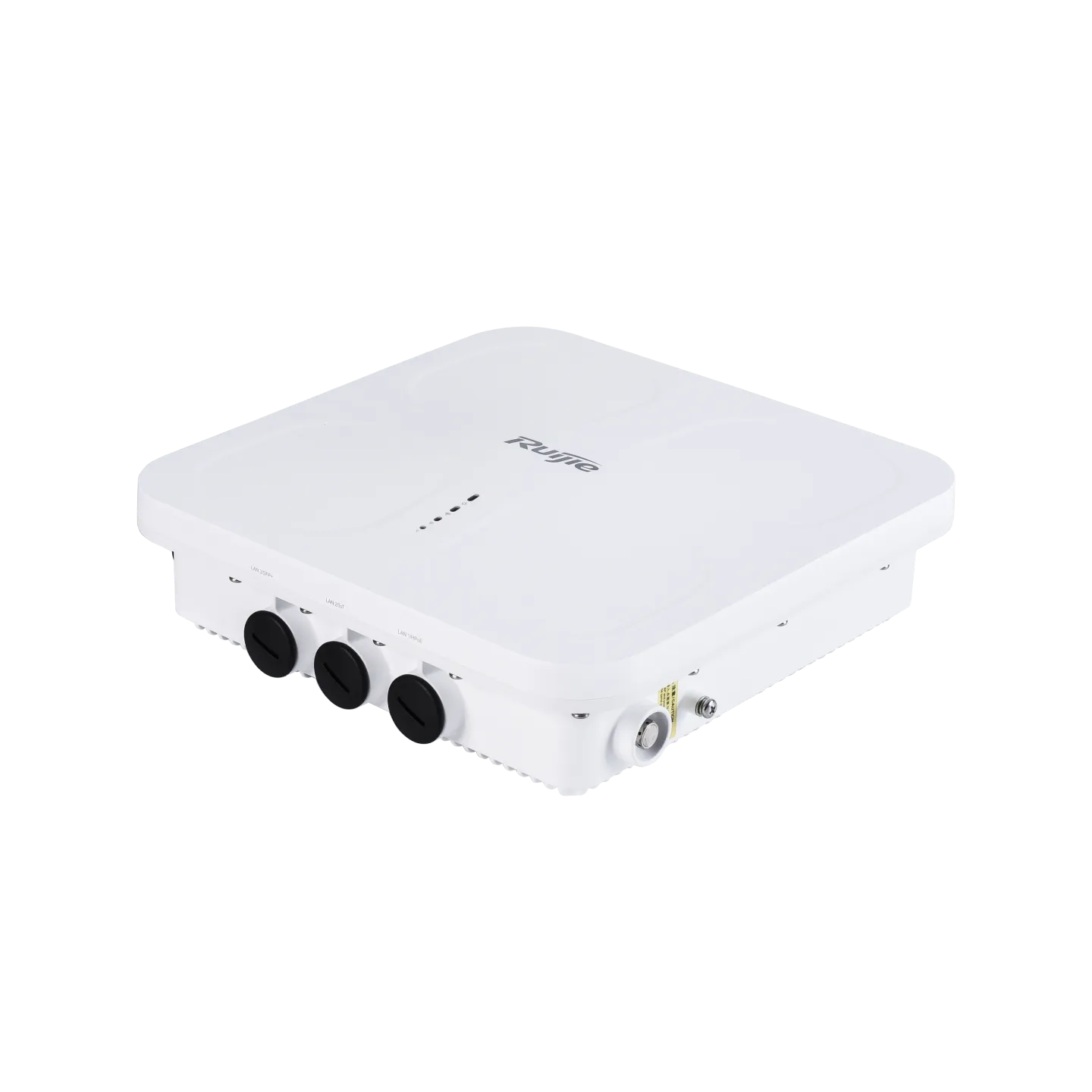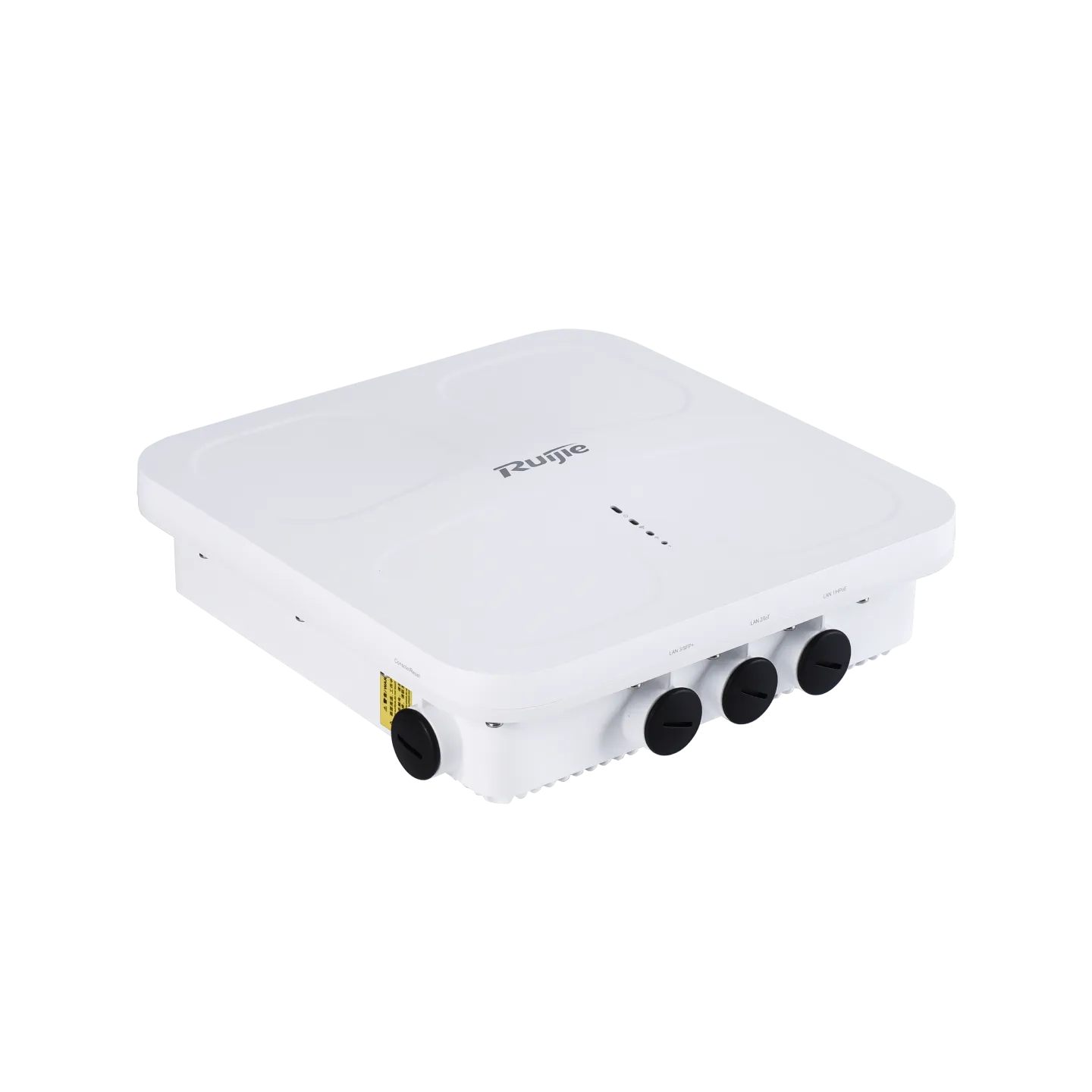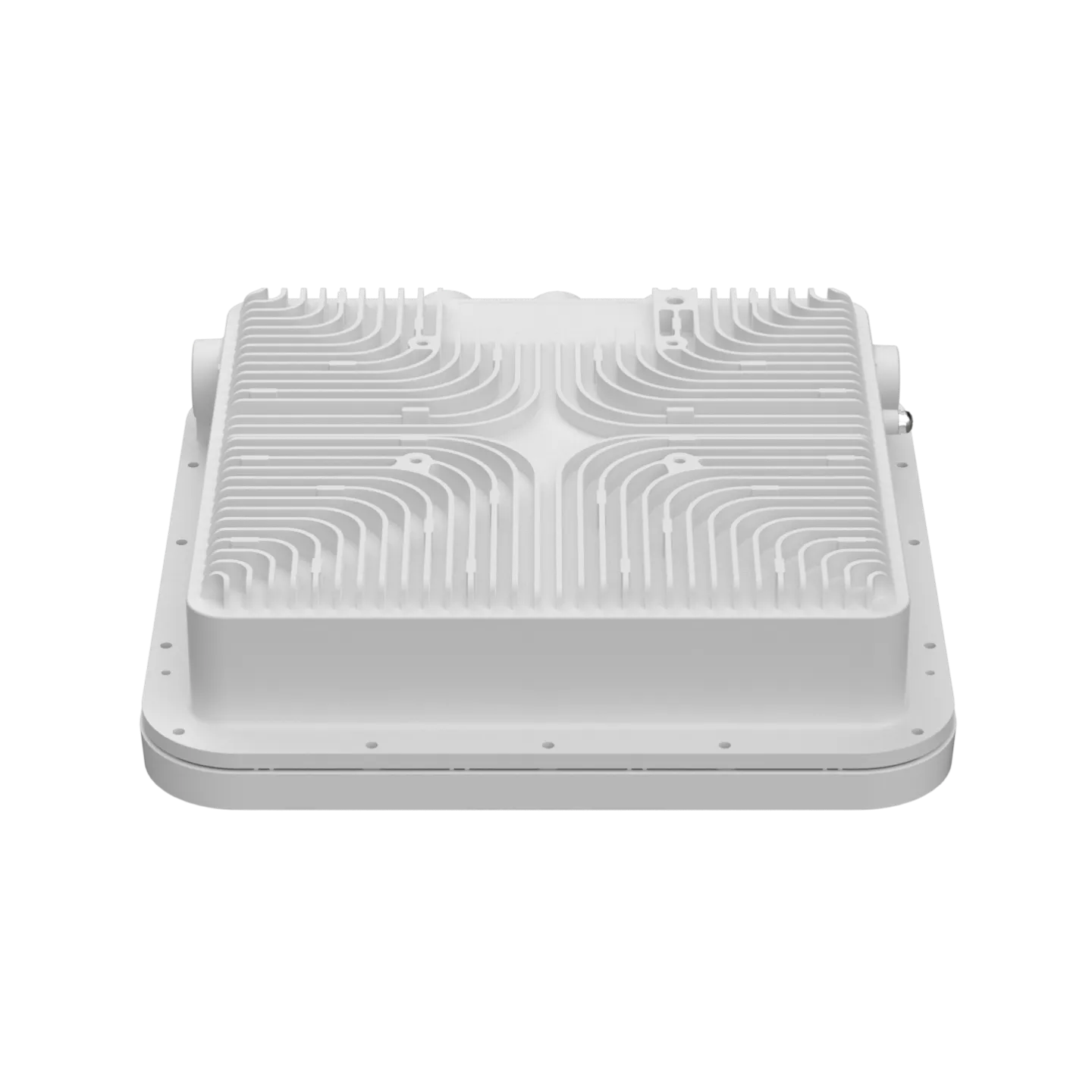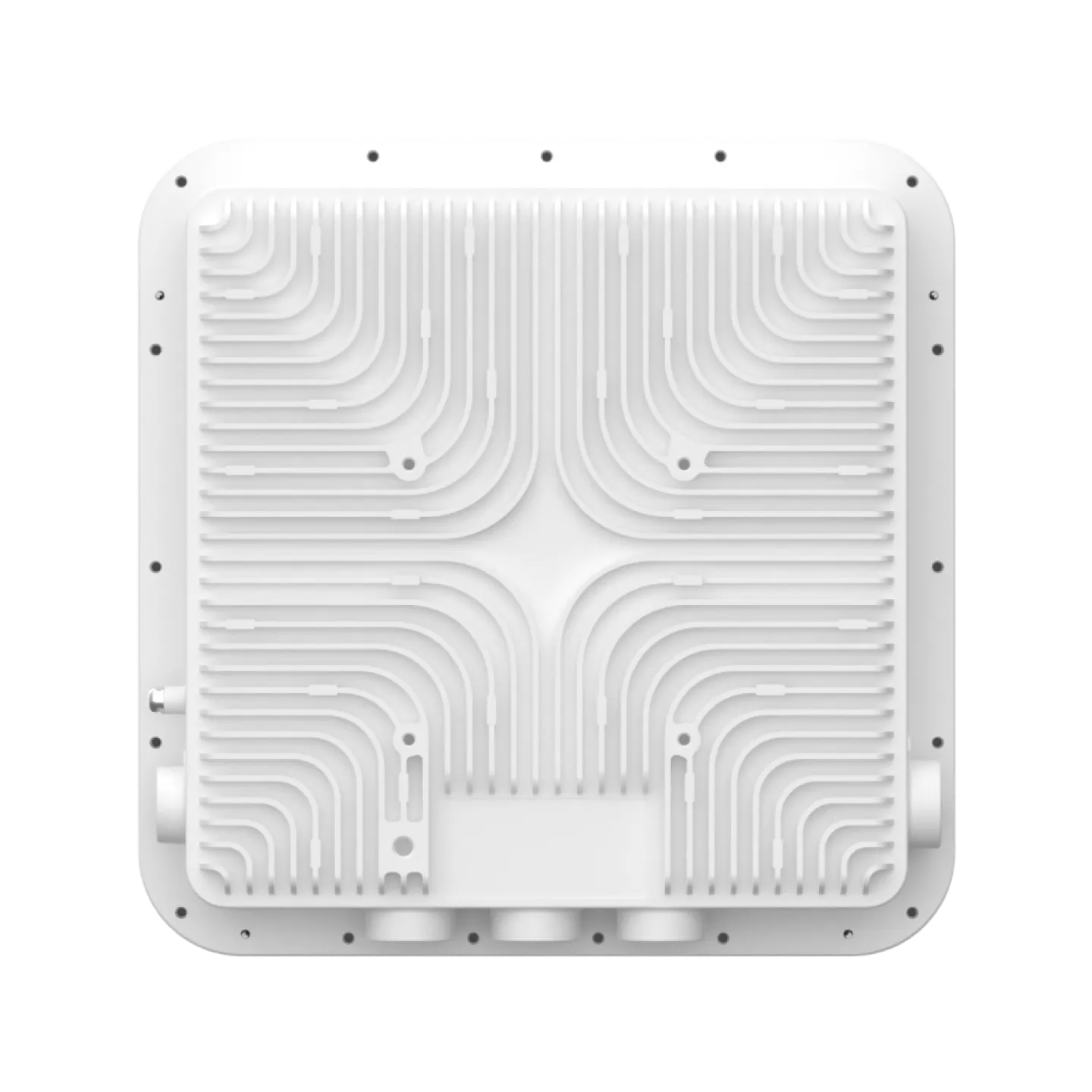Product Overview
The RG-AP680P-L is an 802.11ax-compliant dual-radio wireless access point (AP) provided by Ruijie Networks and is fit for higher education, wireless city, energy, and plaza scenarios.
It complies with 802.11ax, 802.11ac Wave2, 802.11ac Wave1, and 802.11n. With a hardware-independent dual-radio design, the RG-AP680P-L can provide a data rate of up to 5.951 Gbps. The ultra-fast wireless rate eliminates the performance bottleneck.
The design of the RG-AP680P-L considers factors such as wireless network security, radio control, mobile access, QoS, seamless roaming, and Internet of Things (IoT) scalability. With Ruijie's access controller (AC) and Ruijie Cloud servers, the RG-AP680P-L can implement wireless client data forwarding, security features, access control, and IoT application extension.
The RG-AP680P-L adopts IP68 rated housing. It is applicable to harsh outdoor environments and easy to install and maintain.
Product Highlights
Wi-Fi 6 certification
Data rate of up to 5.951 Gbps and concurrent dual-radio design
Up to 1024 client connections
Built-in smart omnidirectional antenna
Excellent environmental adaptability: IP68, –40°C to +65°C (–40ºF to +149ºF), and 6 kV surge protection
OFDMA, MU-MIMO technologies for minimal wireless signal interference
Hybrid management: support for thousands of standalone APs, and AC management and public cloud deployment options
Mobile management: free mobile applications for Ruijie Cloud customers
